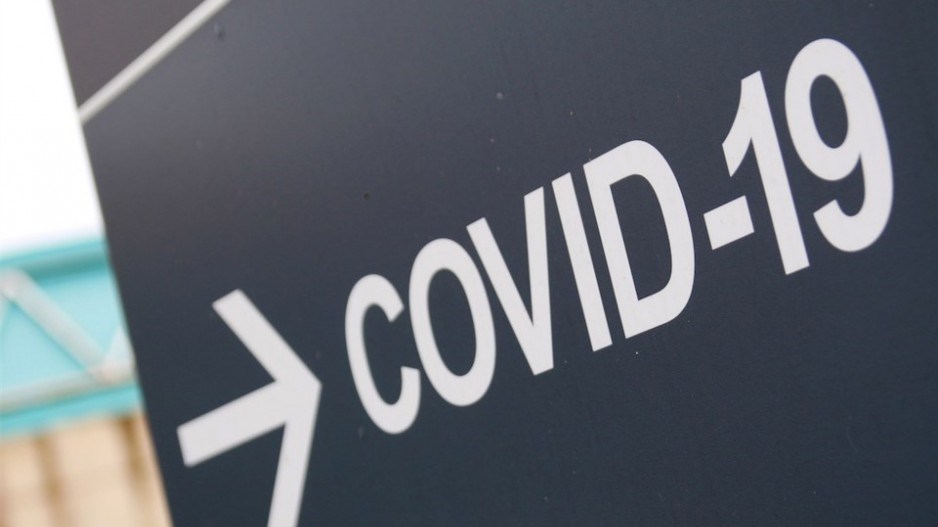Discussions about COVID-19 are no longer monopolizing our lives.
We are months removed from the restrictions and mandates that tested the resolve of all levels of government. The minds of Canadians have decidedly turned to our usual concerns: health care, housing and the economy.
Still, not all Canadians believe the pandemic is over, and some evident differences remain across the country. In the latest survey by Research Co. and Glacier Media, seven in 10 Canadians (70 per cent) continue to regard COVID-19 as a real threat, while 27 per cent disagree and three per cent are not sure. This represents a seven-point drop in the proportion of worried Canadians since August 2022, which coincides with a seven-point increase in the ranks of those who no longer see the pandemic as a menace.
This month, we continue to see Canadians aged 55 and over expressing more concern about COVID-19 (78 per cent) than their counterparts aged 35 to 54 (65 per cent) and aged 18 to 34 (66 per cent).
Across the country, 69 per cent of Canadians are satisfied with the way the federal government managed the pandemic, up 14 points since August. There is a significant regional change, with British Columbia providing the highest positive rating for the federal government (64 per cent), ahead of the two provinces that have been traditionally satisfied since 2020: Ontario and Quebec (each at 61 per cent). The rating drops slightly to 59 per cent in Atlantic Canada and Manitoba and Saskatchewan and plummets to 47 per cent in Alberta.
When Canadians ponder how their municipal governments have dealt with COVID-19, 58 per cent (down one point) are satisfied. Saskatchewan and Manitoba are ahead of all other regions on this indicator with 64 per cent.
Since the last time we asked this question in August, there have been remarkable developments in the four most populous provinces of Canada. Voters in Ontario and Quebec gave premiers François Legault and Doug Ford renewed majority mandates. Alberta and British Columbia have new heads of government, following the party leadership contests won by Danielle Smith and David Eby.
A majority of Canadians (58 per cent, up five points) are content with the way their provincial government dealt with COVID-19. Satisfaction is highest in British Columbia (68 per cent, up six points), followed by Quebec with 62 per cent (up four points), Ontario with 54 per cent (up six points) and Alberta with 46 per cent (up seven points).
Three in five Canadians (60 per cent, down six points since May 2022) are satisfied with how the federal chief public health officer has managed the pandemic, and a similar proportion (61 per cent, down five points) feel the same way about their provincial health officer or chief medical officer.
There is some fluctuation in the numbers for specific top doctors in four provinces. Two-thirds of British Columbians (66 per cent, up three points) are satisfied with the performance of Bonnie Henry. The rating fell for both Quebec’s Luc Boileau (60 per cent, down six points) and Ontario’s Kieran Moore (59 per cent, down eight points).
The biggest change is in Alberta, the only province where a new officer was appointed last month. In May, almost two-thirds of Albertans (65 per cent) were satisfied with the work of Deena Hinshaw. Her replacement Mike Joffe checks in at 53 per cent this month – 12 points lower.
For three in four Canadians (75 per cent, up seven points since August), the worst of the pandemic is “definitely” or “probably” behind us, while fewer than one in five (17 per cent, down three points) believe the situation may deteriorate. It is important to note that British Columbia, where satisfaction with both the government and the provincial health officer is highest, is also the province where the fewest residents expect COVID-19 to worsen (10 per cent). In Ontario, Alberta and Atlantic Canada, this indicator sits at or above 20 per cent.
Almost three years after Canadians began to learn about COVID-19, Canadians are not upset with what the federal government has accomplished. Provincially, British Columbia and Quebec continue to post higher numbers than Ontario and Alberta.
The two provinces that are currently governed by premiers who have not led their parties to an election provide diverse numbers. British Columbia, where no major action was taken with the public health officer or the minister of health, remains at the top of the satisfaction charts when it comes to COVID-19. Alberta, where the premier made it a point to replace the top doctor at the earliest opportunity and where a new minister of health took over in September, remains at the bottom.
Mario Canseco is president of Research Co.
Results are based on an online study conducted on December 10 to December 12, 2022, among 1,000 adults in Canada. The data has been statistically weighted according to Canadian census figures for age, gender and region in Canada. The margin of error – which measures sample variability – is plus or minus 3.1 percentage points, 19 times out of 20.






